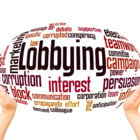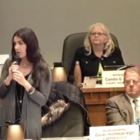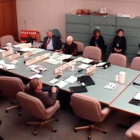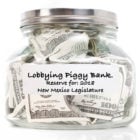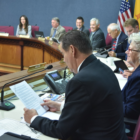2021 Legislative Session
Lawmaker, advocates pursue greater sunshine from lobbyists
|
Lobbying at the Roundhouse is a little bit different from other states. Put a crop of unpaid “citizen legislators” and well-paid professional lobbyists in a building together, and a certain culture develops in which lobbyists become key sources of information for lawmakers. “When I have colleagues that come in here from other states, or from the national level, they’re amazed at the degree of access that folks have here, and it’s more of an informal kind of a situation than it is at a lot of other venues,” said Dan Weaks, a professional lobbyist. In contrast to unpaid, understaffed legislators, lobbyists—many of whom have significant monetary resources at their disposal—can play an outsized role in the policymaking process, said Sen. Jeff Steinborn, D-Las Cruces, who has witnessed employers hire as many as 10 lobbyists for a single issue.
“They had a lobbyist posted at every elevator.”
Another senator didn’t mince words. The system we have “empowers lobbyists over the people’s elected representatives, and that’s a pretty dysfunctional system, in my view,” said Sen. Jacob Candelaria, D-Albuquerque.
